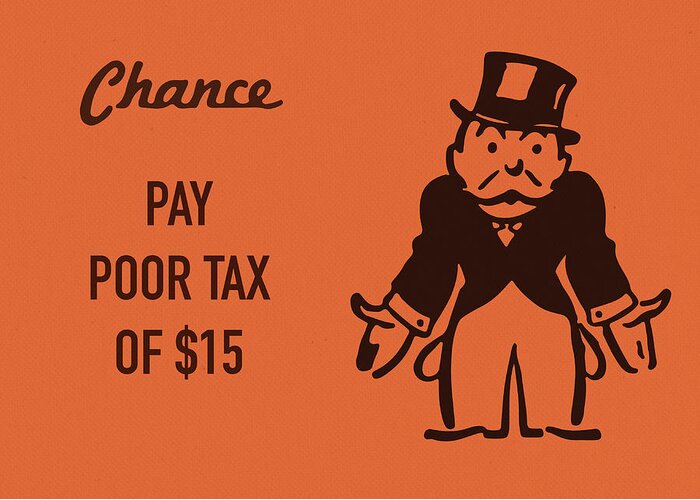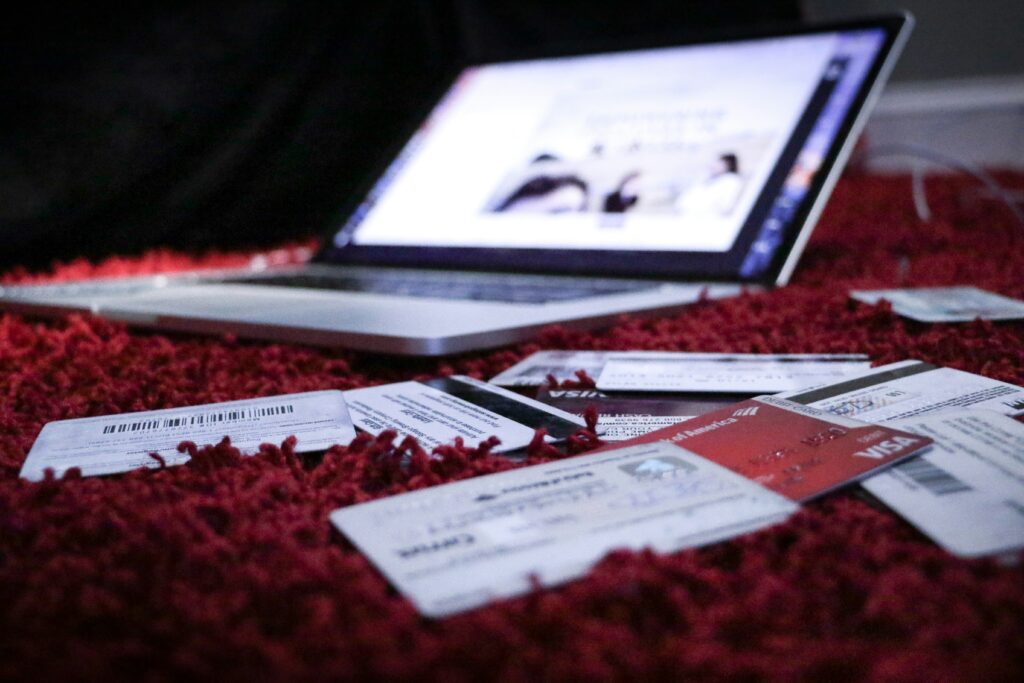You ever look at your bank account and whisper, “But I didn’t even do anything…” Yeah, same. As someone who’s spent years swimming through spreadsheets, decoding tax codes, and listening to friends panic-text me about overdraft fees, let me tell you: it’s not always the big splurges that drain your wallet. It’s the sneaky, quiet stuff. The financial “slow leaks” that chip away at your money before you’ve even realized it left.
So, let’s talk about the 13 traps that are low-key wrecking your finances—straight from someone who actually understands compound interest and cries when people buy cars with 84-month loans. 👀
1. Subscriptions You Forgot You Signed Up For

Welcome to the modern age of accidental subscriptions. You know the ones: “7-day free trial, cancel anytime!” And then boom—you’re unknowingly paying $12.99/month for something you used once to stalk your ex’s cousin’s dog’s Instagram. According to a study by C+R Research, 42% of consumers admit they’ve continued paying for a subscription they no longer use. Most people think they spend about $86 per month on subscriptions. The actual average? $219. Yikes.
The worst part? These aren’t just Netflix and Spotify. It’s the meditation app you downloaded during your “healing era,” the cloud storage you forgot existed, and the premium LinkedIn you never used. Do a ruthless spring cleaning of your bank statements and kill off anything that’s not actively improving your life. If it ain’t a hell yes, it’s a cancel-that-ISH.
2. Using Buy Now, Pay Later (BNPL) Like It’s Monopoly Money

BNPL services like Klarna, Afterpay, and Affirm make it way too easy to ball out with zero dollars in your checking account. They break down that $200 sneaker purchase into four “easy” $50 payments—suddenly it feels responsible. But here’s the tea: the Consumer Financial Protection Bureau warns that frequent BNPL users are significantly more likely to carry credit card debt, overdraw their accounts, and rely on other risky financial behaviors.
The issue? You’re stacking these mini-payments like Jenga blocks, and eventually, it crashes. You forget about the upcoming auto-deduct, then bam—overdraft fee. Repeat that a few times a month and suddenly your bank thinks you’re on a spending bender when really, you just wanted some boots. Use BNPL sparingly, and for things you could technically pay in full today. Otherwise, you’re just renting vibes you can’t afford.
3. Letting Your Emergency Fund Be “Vibes Only”

Nothing screams millennial chaos like your entire safety net living inside a checking account you’re “gonna move soon, I swear.” But having zero emergency fund—or one that’s just vibes and Venmo balances—is a one-way ticket to Brokeville. According to a Bankrate report, 57% of Americans wouldn’t be able to cover a $1,000 emergency expense without going into debt. That’s not just a stat—it’s a crisis waiting to happen.
Car repairs don’t care about your wellness journey. Layoffs don’t wait for retrograde to end. Start small, even $25 a week into a high-yield savings account. Automation is your bestie here—set it and forget it. You’re not too broke to save; you’re too disorganized to prioritize. (Yeah, I said it.)
4. Living in an Apartment That’s Low-Key Too Luxe for Your Budget

We all want the modern kitchen, gym, and rooftop lounge with string lights and “vibes,” but if your rent eats more than 30% of your take-home pay, you’re house-poor with nice countertops. According to a report by Harvard’s Joint Center for Housing Studies, half of all renters in the U.S. are considered “cost-burdened,” meaning they spend more than 30% of their income on rent. And nearly a quarter are spending over 50%. That’s not sustainable—it’s a slow burn to financial burnout.
You shouldn’t have to choose between groceries and rent. If your rent keeps you paycheck-to-paycheck, it might be time to downgrade, get roommates, or move slightly further out. Yes, even if your current place has an in-unit washer/dryer. You can either impress people with your aesthetic, or your net worth. Pick your struggle.
5. Only Paying the Minimum on Your Credit Cards

This one hurts. Minimum payments are a trap disguised as “you’re doing great, sweetie.” But in reality? You’re just treading water while interest compounds in the background like a villain monologue. According to CNBC, 45% of cardholders carry a balance month to month. That balance? It comes with an average APR of over 20%. So no, paying $35 a month on a $2,000 balance is not the flex you think it is.
You end up paying way more in the long run. Instead, aim for the avalanche method (paying off high-interest cards first) or the snowball method (smallest balance first). Just don’t let “minimum payment” become your max effort. Credit card companies love that for them, not for you.
6. Not Checking Your Bank Statements (Like, Ever)

Look, I get it. Logging into your bank app can feel like opening a scary email from your ex. But ignoring it doesn’t make the damage go away—it just gives it time to spread. Not reviewing your statements regularly means you’re missing sneaky charges, duplicate payments, and straight-up fraud. And no, relying on push notifications doesn’t count as “monitoring your finances.”
You’d be surprised how many people keep paying for services they canceled months ago—or get charged twice by a shady food delivery app—and never notice. Do a quick scan every week. You don’t need to become a spreadsheet warrior, just be aware. Because “oops I didn’t know” won’t get that $99 mystery charge reversed.
7. Letting Lifestyle Creep Eat Your Raises

You got a raise! Congrats! Time to upgrade to a nicer car, new phone, maybe that fancy grocery store with the $8 oat milk, right? Wrong. That’s lifestyle creep—when your expenses rise at the same pace as your income. So you feel richer but you’re not actually saving more. Your net worth stays the same, just with better shoes.
Here’s the move: lock in a portion of every raise for saving or investing before your brain starts romanticizing a Dyson Airwrap. Lifestyle creep is sneaky, because it feels earned. But building wealth requires you to live below your means, even when you technically could afford more. Don’t let that raise vanish into a cuter version of broke.
8. Always Choosing Convenience Over Cost

Delivery apps, rideshares, and pre-chopped veggies are the holy trinity of “I can’t even today.” And sure, they save time. But at what cost? Spoiler: it’s a lot. One $16 DoorDash order twice a week adds up to over $1,600 a year—and that’s before you tip. Add in overpriced coffee runs and “emergency” Target trips and suddenly your budget has a leak bigger than your emotional support water bottle.
We’re not saying become a hermit. But ask yourself if it’s actually saving you time or just feeding your procrastination. A little effort (meal prep, public transport, setting an actual grocery list) can give your budget a break and your future self a raise. Time is money, yes—but money is money too.
9. Believing You’ll “Magically” Get Better at Money Later

I know this lie well. “Next month I’ll start budgeting. I just need to get through this wedding/trip/holiday season first.” But spoiler: life never stops lifing. There’s always something. Waiting until it feels easy is a recipe for never starting. Financial literacy isn’t something you magically wake up with after a certain age—it’s a skill you have to build like biceps or boundaries.
The best time to start was five years ago. The second-best time is literally this week. You don’t need to master investing, just start tracking your spending. You don’t need a finance degree, just a system you’ll stick to. Financial adulthood is less about perfection and more about attention.
10. Thinking Your Job = Job Security

One paycheck. That’s what most people rely on to cover everything. But jobs aren’t guaranteed—layoffs are up, automation is creeping, and your boss might be one acquisition away from vanishing. Building multiple income streams isn’t just for “hustle culture” bros—it’s your safety net.
Start small: freelance, a weekend gig, digital products, resell old stuff. Diversifying your income isn’t about becoming a millionaire. It’s about making sure you’re not financially devastated by one bad email.
11. Relying on Tax Refunds as a Bonus Check

Tax refund season hits and suddenly everyone’s making brunch plans and shopping like they’re on a game show. But here’s the truth: your refund isn’t free money—it’s your money the government borrowed interest-free all year. If your refund is massive, it likely means you’re overpaying in taxes. That might feel safe, but you’re essentially giving Uncle Sam a free loan.
Adjust your W-4 to better reflect your actual tax liability. Use that extra cash throughout the year to invest, pay off debt, or build your emergency fund. That way, you’re not waiting until spring to fix your finances with a single check.
12. Not Talking About Money With Friends or Partners

We’ve been conditioned to treat money talk like Voldemort—it must not be named. But avoiding the convo just leads to confusion, resentment, and missed opportunities. Whether it’s splitting bills, planning a trip, or building a life with someone, avoiding the awkward talk doesn’t make the issue go away—it just makes it messier later.
Make money convos normal. Talk goals, debt, salary ranges, budgeting wins. Your friendships (and relationships) will be stronger for it. And no, it’s not tacky—it’s responsible. Vulnerability ≠ weakness. In finance and life.
13. Failing to Automate Your Finances

You automate your coffee order and Instagram stories—why not your bills and savings too? Manual effort is where good intentions go to die. Set your savings on auto-transfer. Schedule bill payments. Auto-invest in your Roth IRA. When systems are automatic, your success doesn’t rely on motivation, memory, or Mercury’s mood.
People don’t get rich from willpower—they get rich from consistency. Treat your finances like a lazy genius would. Set it up once and let the algorithm do the heavy lifting while you romanticize your little life with peace of mind.
This article is for informational purposes only and should not be construed as financial advice. Consult a financial professional before making investment or other financial decisions. The author and publisher make no warranties of any kind.








